Search
Remove Ads
Advertisement
Summary 
Loading AI-generated summary based on World History Encyclopedia articles ...
Search Results
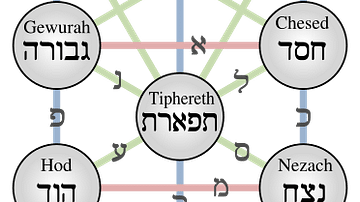
Definition
Kabbalah
The term Kabbalah refers specifically to the form of Jewish mysticism that became widespread in the Middle Ages. However, in recent decades it has essentially become a generic term for the entirety of Jewish mystical thought. Literally meaning...
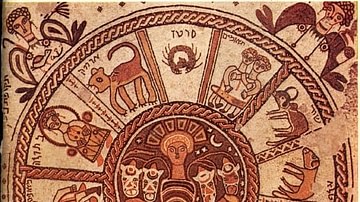
Definition
Western Astrology
Western astrology refers to a form of divination based on the motion of astronomical objects such as stars or planets. The belief that astronomical objects are divine or influence events on Earth is found in many cultures, but the practices...
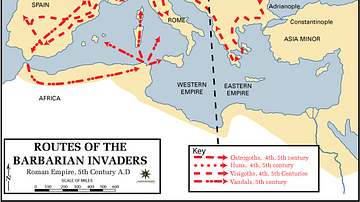
Definition
Western Roman Empire
The Western Roman Empire is the modern-day term for the western half of the Roman Empire after it was divided in two by the emperor Diocletian (r. 284-305 CE) in c. 285/286 CE. The Romans themselves did not use this term. At its height (c...

Video
Margery Kempe & English Mysticism (In Our Time)
Melvyn Bragg and guests discuss the English mystic Margery Kempe (1373 - 1438 CE) whose extraordinary life is recorded in a book she dictated, The Book of Margery Kempe. She went on pilgrimage to Jerusalem, to Rome and Santiago de Compostela...
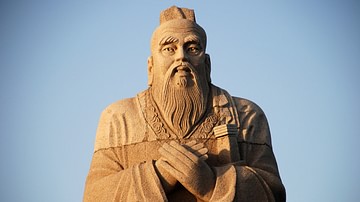
Article
Similarities Between Eastern & Western Philosophy
Although there are certainly differences between Eastern and Western philosophical systems, they both aim at the same goal of apprehending Truth and understanding the best way to live one's life. Modern-day scholarship often makes a serious...

Article
Fall of the Western Roman Empire
To many historians, the fall of the Western Roman Empire in the 5th century CE has always been viewed as the end of the ancient world and the onset of the Middle Ages, often improperly called the Dark Ages, despite Petrarch's assertion. Since...
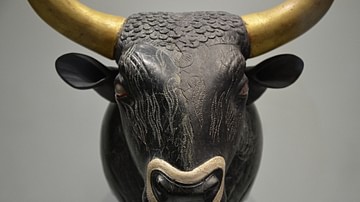
Article
Exploring Western Crete's Archaeological Treasures
As the cradle of European civilization and a meeting place of diverse cultures, Crete is a magical island that stands apart in the heart of the Mediterranean sea. Its prominent place in world history dates back to the mysterious and fascinating...

Image
The Fall of the Western Roman Empire, c. 480 CE
A map illustrating the gradual process of disintegration known as the Fall of the Western Roman Empire. During the Migration Period (a period of accelerated movement of peoples across Europe between the 5th and 9th centuries, also known as...

Image
South African Patrol, Western Desert Campaign
A July 1941 photograph showing a South African desert patrol in North Africa during the Western Desert Campaigns of the Second World War (1939-45). (Imperial War Museums)
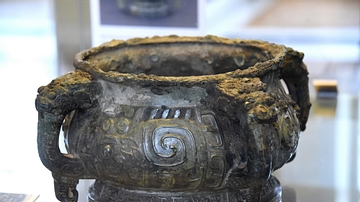
Image
Western Zhou Ritual Vessel
The bronze and its inscription were cast for the Duke of Xing, a descendant of a famous historical figure, the Duke of Zhou. The long inscription inside dedicates the vessel to the Duke of Zhou. It records the gift of three groups of men...